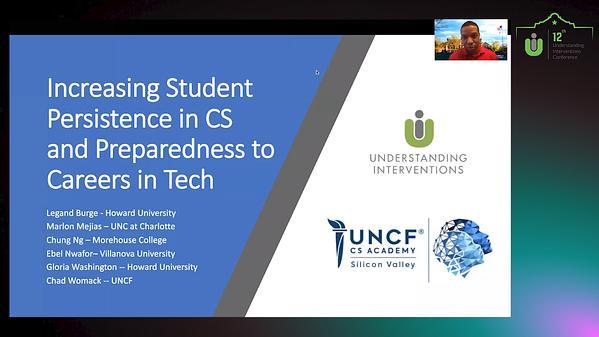Would you like to see your presentation here, made available to a global audience of researchers?
Add your own presentation or have us affordably record your next conference.
keywords:
quality of trials
quality of reporting
diversity and inclusion
Objective Racial and ethnic minority groups are underrepresented in clinical research. Racially diverse individuals who speak languages other than English or have limited proficiency may be hindered from participation in randomized clinical trials (RCTs) through eligibility criteria.1,2This study sought to assess English language requirements for enrollment in registered and published RCTs.
Design In a cross-sectional design, PubMed, Scopus, Epistemonikos, EBSCO Host, COVID-evidence, Web of Science Core Collection, and the World Health Organization COVID-19 databases were searched for RCTs in the top 10 first-quartile general and internal medicine journals in 2017 on May 4, 2022, with at least 1 US site comparing heart disease, stroke, cancer, asthma, influenza and pneumonia, diabetes, HIV/AIDS, and COVID-19 drug interventions with standard or usual care or placebo with ClinicalTrials.gov registration and protocols. Phrases collected from a previous assessment were searched for in the eligibility criteria in protocols and ClinicalTrials.gov records that indicated that English language was a requirement for trial enrollment. Good agreement was achieved by independent selection by 2 reviewers for inclusion (κ = 0.85; 95% CI, 0.75-0.95) and data extraction and identification of language requirements in RCTs (κ = 0.98; 95% CI, 0.87-1.00) from a sample of 50 RCTs. The primary outcome was the frequency of RCTs with English language requirements in eligibility criteria in protocols and ClinicalTrials.gov records by disease and funder type (industry funders had at least 1 industry funder, while nonindustry funders had no industry funding). Secondary outcomes were readability of eligibility criteria in ClinicalTrials.gov records and reporting of race as a demographic variable. Readability was assessed with Flesch- Kincaid grade (FKG) level (ranges from grades 0 to 18 college graduate) and Gunning-Fog (GF) (ranges from grades 0 to 20 college graduate), where lower grades correspond to easier readability. Mann-Whitney and Kruskal- Wallis tests compared readability between funder and disease with a 2-tailed P value set at less than .05.
Results A total of 39 of 2663 RCTs from Annals of Internal Medicine (n = 1), JAMA (n = 14), JAMA Internal Medicine (n = 3), Lancet (n = 12), PLoS Medicine (n = 1), and New England Journal of Medicine (n = 8) were found. The eligibility criteria made no explicit statements about English or any other language required for enrollment (Table 60) for American Indian participants (median range, 7 1-110), Asian participants (median range, 18 1-836), Black participants (median range, 54 4-2534), Latinx participants (median range, 83 2-492), and White participants (median range, 264 3-8715). The median (IQR) FKG and GF levels by disease were 13.20 (11.80-13.90; P = .99) and 13.80 (12.10-15.00; P = .66), respectively. By funder, the median (IQR) FKG and GF levels were 13.20 (11.80-13.90; P = .16) and 13.80 (12.10-15.00; P = .13).

Conclusions Racial and ethnic minority groups were underrepresented in RCTs; there was low explicit reporting of required languages in RCT eligibility criteria; and readability levels of protocols were high. Trialists and researchers should be aware of the importance of the inclusion of underrepresented individuals, the explicit reporting of languages for participants, and the readability of trial information.
References
- George S, Duran N, Norris K. A systematic review of barriers and facilitators to minority research participation among African Americans, Latinos, Asian Americans, and Pacific Islanders. Am J Public Health. 2014;104(2):e16-e31. doi:10.2105/AJPH.2013.301706
- Muthukumar AV, Morrell W, Bierer BE. Evaluating the frequency of English language requirements in clinical trial eligibility criteria: a systematic analysis using ClinicalTrials. gov. PLoS Med. 2021;18(9):e1003758. doi:10.1371/journal. pmed.1003758
Conflict of Interest Disclosures None reported.


